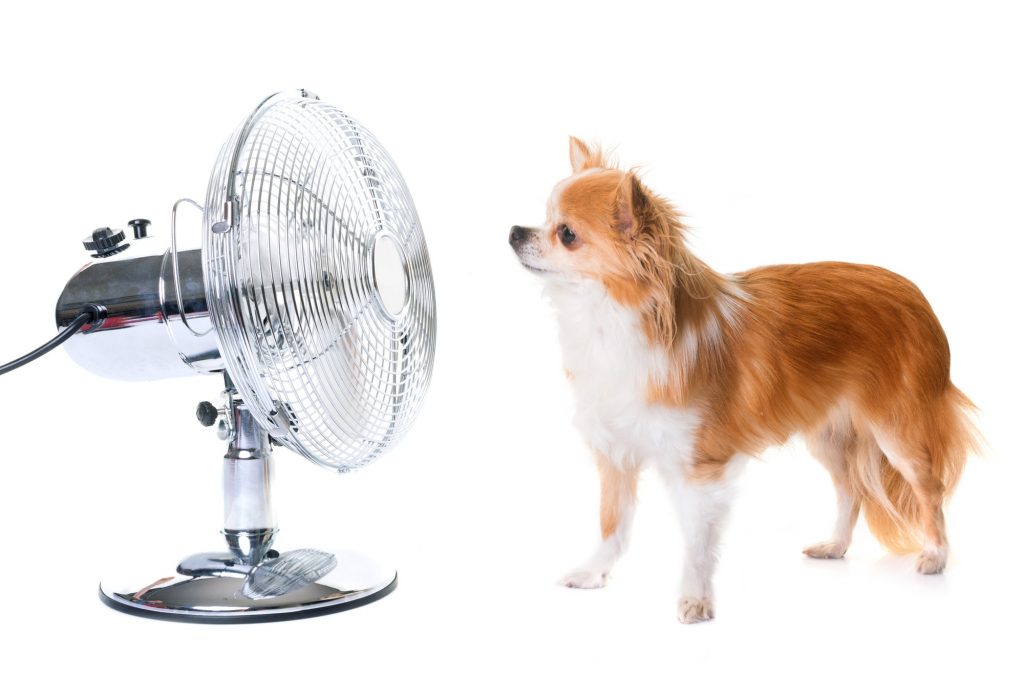Here are some tried and true tips from the ASPCA for keeping your animals cool and safe during the warmer months:
- Visit the Vet. A visit to the veterinarian for a spring or early summer check-up is a must. Make sure your pet is up-to-date on all necessary vaccinations. Pets should also be given a blood test for heartworm every year in the early spring. The deadly parasite is transmitted through the bite of an infected mosquito, and it is recommended that dogs and cats be on a monthly preventive medication year-round.
- Keep Cool. Dogs and cats can become dehydrated quickly, so give your pets plenty of water when it is hot outdoors. Also make sure your pet has a shady place to escape the sun, and when the temperature is very high, don’t let your dog linger on hot asphalt. Being so close the ground, your dog’s body can heat up quickly, and sensitive paw pads can burn. “Never leave your animals alone in a parked vehicle,” adds Dr. Louise Murray, Director of Medicine at the ASPCA’s Bergh Memorial Animal Hospital. “On a hot day, even with the windows open, a parked automobile can become a furnace in no time, and heatstroke can develop, which is potentially fatal.”
- Know the Symptoms. According to Dr. Murray, “the symptoms of overheating in pets include excessive panting or difficulty breathing, increased heart and respiratory rate, drooling, mild weakness, seizures, and an elevated body temperature of over 104 degrees.” “Animals with flat faces, like pugs and Persian cats, are more susceptible to heat stroke since they cannot pant as effectively,” she says. “These pets, along with the elderly, the overweight, and those with heart or lung diseases, should be kept cool in air-conditioned rooms as much as possible.”
- Just Say No. Summertime is the perfect time for a backyard barbeque or party, but please remember that the food and drink you serve your guests may be poisonous to pets. “Keep alcoholic beverages away from pets, as they can cause intoxication, depression, comas, or even death,” says Dr. Hansen. “Similarly, remember that the snacks you serve your friends should not be a treat for your pet; any change of diet, even for one meal, may give your dog or cat severe digestive ailments.” Avoid raisins, grapes, onions, chocolate and products with the sweetener xylitol.
- Pest-Free Pets. Commonly-used flea and tick products, rodenticides (mouse and rat baits), insecticides, and herbicide lawn products can be harmful to cats and dogs if ingested, so keep them out of reach. While there are flea products that can be used safely on dogs, these same products can be deadly to cats, because of the presence of the chemical permethrin. Be sure to read directions on these products carefully. When walking your dog, steer clear of areas that you suspect have been sprayed with insecticides or herbicide lawn products. Keep citronella candles, oil products and insect coils out of pets’ reach as well.
- Water Safety is Pet-friendly. Do not leave pets unsupervised around a pool, as not all dogs are good swimmers. Introduce your pets to water gradually and make sure pets wear flotation devices while on boats. Rinse your dog off after swimming to remove chlorine or salt from his fur, and try to keep your dog from drinking pool water, which contains chlorine and other chemicals that could cause stomach upset.
- Beware of “High Rise Syndrome.” “During warmer months, we see an increase in injured animals as a result of ‘High-Rise Syndrome,’ which occurs when pets fall out of windows or doors and are seriously or fatally injured,” says Dr. Murray. “Pet owners need to know that this is completely preventable if they take simple precautions.” Keep all unscreened windows or doors in your home closed and make sure adjustable screens are tightly secured.
- No Fireworks for Fido. Please leave pets at home when you head out to Fourth of July celebrations, and never use fireworks around pets. Dr. Hansen explains, “While exposure to lit fireworks can potentially result in severe burns or trauma to curious pets, even unused fireworks are hazardous. Many types of fireworks contain potentially toxic substances such as potassium nitrate, copper, chlorates, arsenic and other heavy metals.”


